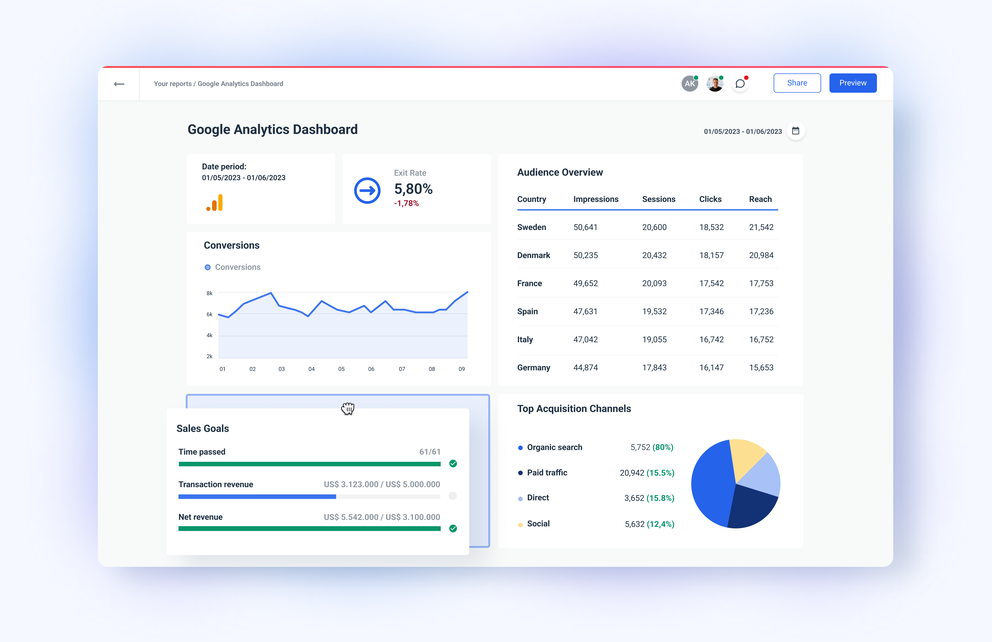
In today's digital age, data-driven decision-making is crucial for the success of any marketing campaign. Google Analytics is a powerful tool that provides valuable insights into the performance of your website and marketing efforts. By leveraging Google Analytics effectively, you can maximize your return on investment (ROI) and drive marketing success. In this article, we will explore how you can use Google Analytics to its full potential to achieve your marketing goals.
The Importance of Google Analytics
Google Analytics is a free web analytics service offered by Google that tracks and reports website traffic. It provides valuable information about your audience, their behavior on your site, and the effectiveness of your marketing efforts. Here are some key reasons why Google Analytics is essential for marketing success:
1. Data-Driven Insights
- Google Analytics gives you access to a wealth of data about your website and marketing activities.
- You can track key metrics such as website traffic, conversion rates, bounce rates, and more to understand how your campaigns are performing.
2. Audience Understanding
- With Google Analytics, you can gain insights into your audience demographics, interests, and behavior.
- This information helps you tailor your marketing strategies to better target your ideal customers.
Using Google Analytics to Maximize ROI
Now that we understand the importance of Google Analytics marketing dashboard , let's explore how you can leverage this tool to maximize your ROI:
1. Set Clear Goals
- Before you start using Google Analytics, it's important to define your marketing goals.
- Whether it's increasing website traffic, improving conversion rates, or boosting online sales, having clear goals will help you track your progress and measure ROI effectively.
2. Track Key Metrics
- Identify the key performance indicators (KPIs) that align with your marketing goals.
- Track metrics such as traffic sources, page views, bounce rates, and conversion rates to measure the success of your campaigns.
3. Monitor Campaign Performance
- Use Google Analytics to track the performance of your marketing campaigns in real-time.
- Monitor metrics such as click-through rates, engagement rates, and conversion rates to optimize your campaigns for better results.
Optimizing Marketing Strategies with Google Analytics
Google Analytics can provide valuable insights that can help you optimize your marketing strategies for better results. Here are some tips for leveraging Google Analytics to improve your marketing efforts:
1. Identify High-Performing Channels
- Use Google Analytics to identify the channels that are driving the most traffic and conversions to your website.
- Focus your marketing efforts on these high-performing channels to maximize ROI.
2. Analyze User Behavior
- Track user behavior on your website, such as pages visited, time spent on site, and actions taken.
- Use this data to optimize your website for better user experience and higher conversion rates.
3. A/B Testing
- Use Google Analytics to conduct A/B tests and compare the performance of different marketing strategies or website designs.
- Optimize your campaigns based on the results of these tests to improve ROI.
Conclusion
Google Analytics is a powerful tool that can help you track, measure, and optimize your marketing efforts for maximum ROI. By setting clear goals, tracking key metrics, and monitoring campaign performance, you can leverage Google Analytics to achieve marketing success. Use the insights provided by Google Analytics to identify high-performing channels, analyze user behavior, and conduct A/B testing to optimize your strategies and drive better results. With the right approach, Google Analytics can be a game-changer for your marketing efforts.